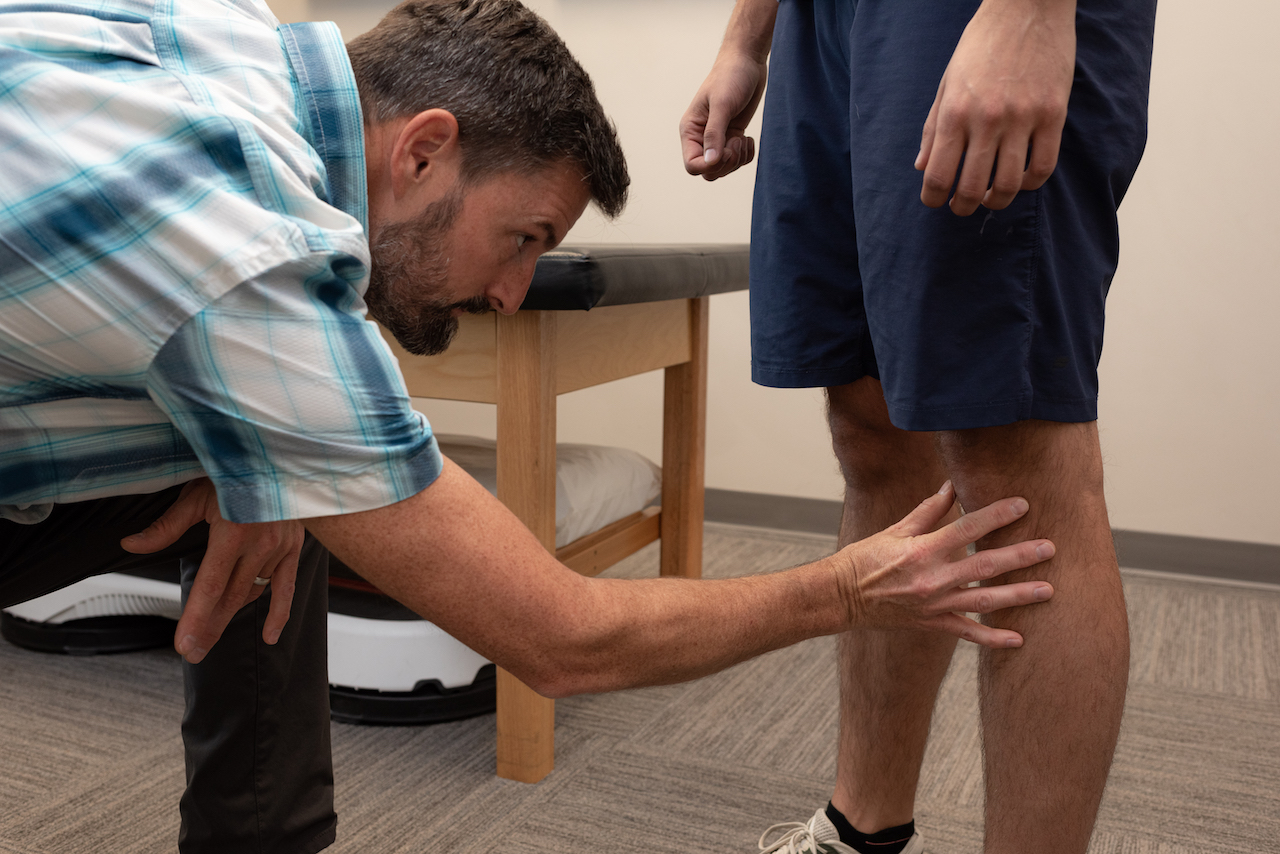
A physical therapy screening, or sports injury screening, is often the best way for athletes of all levels to prevent injuries and perform their best at all kinds of sports from running and conditioning to golf, cross fit, and more. At SIMIO, we leverage our holistic physical therapy approach to offer a comprehensive screening process that helps identify areas of weakness, overcompensation, and potential dysfunction to provide a total diagnostic and treatment plan.
This type of screening can give athletes the tools they need to assess their potential injury risks, and the best ways they can work to mitigate those risks while participating in the activities they choose.
What does a sports injury screening look for?
A general physical therapy screening evaluates the following criteria to determine whether or not an athlete’s level of fitness aligns with their goals:
- Strength, balance, and coordination
- Mobility and flexibility
- Posture and postural asymmetries
- Range of motion
Because physical therapy screenings at SIMIO include comprehensive assessment of movement patterns, functional limitations, range of motion, joint stability and flexibility, we can identify a variety of issues like joint restrictions, muscle imbalances, musculoskeletal asymmetries, joint pain, overuse syndromes, and more.
Our thorough sports injury screening will also evaluate how well systems are responding to, or compensating for, any previous injuries. Assessment considers any current symptoms or complaints related to movement, which can be helpful to identify any abnormalities unique to the individual that could predispose them to certain kinds of injuries.
Common sports injuries that screening can help prevent
By evaluating how an athlete is moving, whether functionally or dysfunctionally, through a series of closely supervised and directed range of motion activities, we identify areas of concern related to how that athlete moves and how they can adapt to the requirements of sport and fitness.
Some of the most common sports and fitness-related injuries physical therapists can help prevent and treat include:
- Joint sprains and strains, especially common in the ankle and wrist
- Joint injuries related to knees
- Back pain
- Joint dislocations, most common in the shoulder
- Shin splints and pain
- Broken bones and fractures
- Muscle tears and tendon injuries, especially in the achilles tendon
- Sport-specific injuries like tennis elbow
Not every sports injury can be prevented or diagnosed ahead of time, but a thorough physical evaluation can give the athlete the best chance for success not only in the outset of a training period or sports season, but in the event that injury does occur down the line, a baseline of functional movement will have been established to better help that athlete with a customized rehabilitation program to return them to pre-injury levels of fitness, faster.
Why get a physical therapy or sports injury screening?
It’s common for student athletes and sports clubs to require some form of sports injury or performance screening prior to participation in that sport. And in many other areas where it may not be required, it’s still a good idea to determine how well your body may react and adapt when starting a new fitness routine or class.
Whether you want to start training for a distance run, pick up tennis, or cross fit, a physical therapy screening can set you up with the tools you’ll need to keep your body up to the task.
Let’s discuss your goals during a free consultation
Correcting poor alignment, postural awareness, or improving your ability to move starts with discovering what is limiting your body’s ability. We’ll examine your whole body for imbalanced relationships that lead to undesired tension, restriction or altered movement. Then we’ll create a roadmap to help you overcome your limits and build an awareness that leads to lasting results.
Arrange a meeting with a licensed physical therapist in Zeeland, MI today.